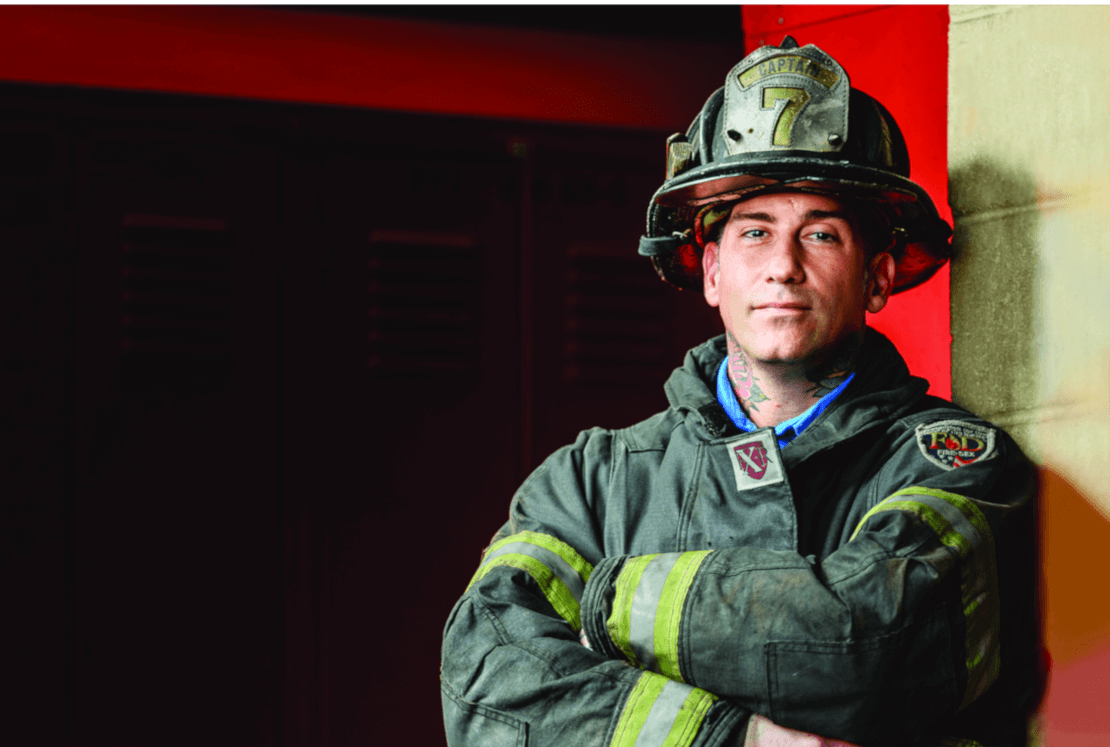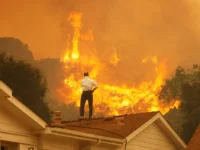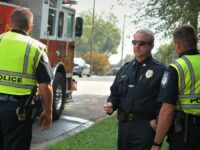Contents
- 1 Introduction to Fire Safety Jobs
- 2 Firefighter: Heroes on the Frontline
- 3 Fire Inspector: Guardians of Compliance
- 4 Fire Investigator: Unraveling the Causes
- 5 Fire Safety Engineer: Designing for Prevention
- 6 Fire Safety Educator: Spreading Awareness
- 7 Emergency Response Planner: Preparedness is Key
- 8 Fire Safety Consultant: Expert Guidance
- 9 Wildland Firefighter: Battling Nature’s Fury
- 10 Career Paths and Training Requirements
Fire safety is a critical aspect of our lives, ensuring the well-being of individuals and the protection of properties. As the demand for fire prevention and protection continues to rise, so does the need for skilled professionals in the field. From firefighting to fire inspection and investigation, there are various rewarding career opportunities for those passionate about ensuring the safety of others. In this article, we will explore the different roles and responsibilities within fire safety jobs, shedding light on the skills required and the potential paths to pursue in this vital industry.
Introduction to Fire Safety Jobs
Fire safety jobs are essential in safeguarding lives and properties from the devastating impacts of fires. Highly skilled professionals dedicated to fire prevention and protection play a vital role in ensuring public safety.
Fire safety professionals work in various capacities, employing their expertise to prevent, detect, and mitigate fire hazards. These roles encompass firefighting, fire inspection, fire investigation, fire safety engineering, fire safety education, emergency response planning, and fire safety consulting.
With the increasing demand for fire safety measures, the need for qualified individuals in this field is ever-growing. In this article, we will explore the distinct roles and responsibilities within fire safety jobs, shedding light on the skills required and potential career paths in this critical industry.
Firefighter: Heroes on the Frontline
Firefighters are the brave men and women who face the flames head-on, risking their lives to protect others and extinguish fires. They are the heroes on the frontline of fire safety.
To become a firefighter, one must possess physical strength, mental resilience, and a strong dedication to public service. Firefighters undergo rigorous training programs that cover various aspects of fire suppression, rescue techniques, hazardous materials handling, and emergency medical care.
Roles and Responsibilities
Firefighters are responsible for responding to emergency calls, whether it is a structure fire, car accident, or medical emergency. Their primary role is to combat and extinguish fires, ensuring the safety of occupants and minimizing property damage.
Additionally, firefighters perform search and rescue operations, evacuating individuals trapped in burning buildings or other dangerous situations. They also provide medical assistance, administering CPR, first aid, and basic life support until paramedics arrive on the scene.
Skills and Qualifications
Firefighters must possess a combination of physical and mental attributes to carry out their duties effectively. Physical fitness is crucial, as firefighters must be able to endure physically demanding tasks, including carrying heavy equipment and working in extreme conditions.
Strong problem-solving skills, quick decision-making abilities, and the capacity to remain calm under pressure are vital in firefighting. Excellent communication skills and the ability to work well as part of a team are also essential for effective coordination during emergencies.
Career Outlook
The demand for firefighters is expected to remain steady, with job opportunities varying by location. While some fire departments may require only a high school diploma or equivalent, many prefer candidates with postsecondary education in fire science or related fields.
Firefighters may also choose to specialize in specific areas such as hazardous materials, technical rescue, or wildland firefighting. Advancement opportunities within the field include positions such as fire captain, battalion chief, and fire chief.
Becoming a firefighter is more than just a job; it is a calling to serve and protect the community. The rewarding nature of this profession, coupled with the opportunity to make a tangible difference in people’s lives, makes firefighting an esteemed and noble career choice.
Fire Inspector: Guardians of Compliance
Fire inspectors play a crucial role in ensuring that buildings and facilities adhere to fire safety codes and regulations. Their primary responsibility is to identify potential fire hazards and enforce compliance to prevent fires and protect public safety.
Roles and Responsibilities
Fire inspectors conduct thorough inspections of buildings, both new and existing, to assess fire safety measures and identify any violations or hazards. They inspect fire alarm systems, sprinkler systems, fire extinguishers, emergency exits, and other fire protection systems to ensure proper functioning and compliance with regulations.
Inspectors also evaluate the general housekeeping practices and storage of flammable materials to minimize fire risks. They may issue citations or notices of violation and work closely with property owners and managers to rectify any deficiencies and achieve compliance.
Skills and Qualifications
Fire inspectors must possess a strong understanding of fire codes, regulations, and safety standards. They need to stay updated with the latest advancements in fire safety technology and be able to interpret and apply complex codes to different situations.
Attention to detail is paramount in this role, as inspectors must thoroughly examine buildings and identify potential hazards or areas of non-compliance. Excellent communication and interpersonal skills are also vital, as inspectors often interact with property owners, managers, and other stakeholders to explain findings and provide recommendations for improvement.
Career Outlook
The demand for fire inspectors is expected to grow steadily, driven by the need for increased fire safety measures. Many fire inspectors begin their careers as firefighters, gaining experience and knowledge in fire suppression before transitioning to inspection roles.
Employment opportunities for fire inspectors exist in various settings, including municipal fire departments, insurance companies, and government agencies. Certification programs and professional organizations provide avenues for career advancement and ongoing professional development.
By diligently enforcing fire safety codes and regulations, fire inspectors play a crucial role in preventing fires and protecting lives and properties. Their expertise and dedication are instrumental in maintaining a high standard of fire safety within communities and ensuring compliance with essential fire prevention measures.
Fire Investigator: Unraveling the Causes
Fire investigators are skilled professionals who play a crucial role in determining the origin and cause of fires. Through meticulous examination and analysis, they unravel the mysteries behind fire incidents, aiding in fire prevention efforts.
Roles and Responsibilities
Fire investigators are responsible for conducting detailed investigations to determine the cause of fires. They collect evidence, interview witnesses, and analyze fire patterns to establish the origin and possible ignition sources. Their findings are crucial in determining whether the fire was accidental, natural, or the result of arson or other criminal activities.
Investigators work closely with law enforcement agencies, insurance companies, and legal professionals to provide expert testimony and assist in legal proceedings related to fire incidents. They may also collaborate with other experts, such as forensic scientists and engineers, to gather additional evidence and evaluate fire dynamics.
Skills and Qualifications
A successful fire investigator possesses a combination of technical knowledge, analytical skills, and attention to detail. They have a solid understanding of fire behavior, combustion principles, and the science behind fire dynamics.
Strong deductive reasoning and critical thinking skills are essential in analyzing fire patterns and determining the most probable cause of a fire. Investigators must also have excellent communication skills to effectively present their findings and conclusions in written reports and courtroom settings.
Career Outlook
The demand for fire investigators is expected to grow as the need for accurate fire cause determinations increases. Many fire investigators begin their careers as firefighters or in other fire service roles, gaining practical experience before specializing in fire investigation.
Employment opportunities exist in various sectors, including fire departments, law enforcement agencies, insurance companies, and private investigation firms. Certification programs and professional associations provide avenues for ongoing education and career advancement within the field.
By meticulously examining fire scenes and uncovering the causes of fires, fire investigators contribute significantly to fire prevention efforts. Their expertise helps in developing strategies to mitigate fire risks and prevent similar incidents in the future, ultimately enhancing public safety and protecting communities.
Fire Safety Engineer: Designing for Prevention
Fire safety engineers are professionals who utilize their knowledge of fire behavior and prevention to design buildings and structures with safety in mind. They play a critical role in developing and implementing fire safety measures to protect lives and properties.
Roles and Responsibilities
Fire safety engineers are involved in the design, construction, and renovation of buildings to ensure they are equipped with adequate fire protection systems. They assess fire risks and develop strategies to prevent, contain, and control fires in various settings, including residential, commercial, and industrial properties.
These engineers analyze building plans, conduct fire hazard assessments, and make recommendations for fire suppression systems, fire alarm systems, and emergency evacuation plans. They also evaluate the use of fire-resistant materials and the effectiveness of passive fire protection measures such as fire doors, fire-resistant partitions, and smoke control systems.
Skills and Qualifications
A successful fire safety engineer possesses a strong foundation in engineering principles, specifically related to fire dynamics, heat transfer, and fluid mechanics. They have a deep understanding of fire behavior and the impact of fire on structural integrity.
Fire safety engineers must also have excellent analytical and problem-solving skills to assess fire risks and develop effective fire safety strategies. They should be familiar with relevant fire safety codes and regulations and stay updated on advancements in fire protection technology.
Career Outlook
The demand for fire safety engineers is expected to grow as stricter fire safety regulations are implemented and the need for innovative fire protection measures increases. Job opportunities exist in architectural and engineering firms, consulting companies, and government agencies.
Fire safety engineers may also specialize in specific areas such as fire modeling, smoke management, or fire risk assessment. Professional certifications and memberships in fire safety organizations enhance career prospects and demonstrate a commitment to professional development.
By contributing to the design and construction of fire-safe buildings, fire safety engineers play a vital role in mitigating fire risks and protecting lives. Their expertise ensures that structures are equipped with effective fire protection measures, reducing the potential for fire incidents and enhancing overall fire safety.
Fire Safety Educator: Spreading Awareness
Fire safety educators are professionals dedicated to promoting awareness and educating the public about fire prevention strategies. They play a crucial role in equipping individuals with the knowledge and skills necessary to prevent fires and respond appropriately in emergency situations.
Roles and Responsibilities
Fire safety educators develop and deliver educational programs focused on fire prevention and safety measures. They work with schools, workplaces, community organizations, and other groups to raise awareness about fire hazards and provide guidance on fire safety practices.
These educators create engaging and interactive materials such as presentations, workshops, and training sessions to effectively convey fire safety information. They cover topics such as fire prevention, escape planning, the proper use of fire extinguishers, and the importance of early warning systems.
Skills and Qualifications
A successful fire safety educator possesses excellent communication and presentation skills to engage diverse audiences. They have the ability to convey complex fire safety concepts in a clear and understandable manner, tailoring their approach to different age groups and learning styles.
Fire safety educators should have a comprehensive understanding of fire prevention techniques, emergency response procedures, and the latest fire safety technologies. They must stay updated on current fire safety codes, regulations, and best practices to provide accurate and relevant information.
Career Outlook
The demand for fire safety educators is expected to remain steady as fire prevention continues to be a priority. Employment opportunities exist in various settings, including fire departments, schools, government agencies, and nonprofit organizations.
Fire safety educators may also collaborate with other professionals, such as firefighters and emergency responders, to enhance their programs and deliver comprehensive training. Continuous professional development through workshops, certifications, and memberships in fire safety associations further strengthens career prospects.
By spreading awareness and providing valuable fire safety information, fire safety educators empower individuals to take proactive measures in preventing fires and minimizing their impact. Their efforts contribute to creating a fire-safe environment and fostering a culture of safety within communities.
Emergency Response Planner: Preparedness is Key
Emergency response planners play a crucial role in preparedness and ensuring effective response during fire emergencies. They develop comprehensive plans and protocols to mitigate the impact of fires and protect lives and properties.
Roles and Responsibilities
Emergency response planners assess potential fire risks and develop strategies to respond swiftly and efficiently in emergency situations. They collaborate with various stakeholders, including fire departments, law enforcement agencies, and local government, to create emergency response plans tailored to specific locations or organizations.
These planners conduct risk assessments, identify evacuation routes, and establish communication systems to enable effective coordination during fire emergencies. They may also organize and conduct drills and training exercises to ensure that personnel are prepared to respond appropriately in high-stress situations.
Skills and Qualifications
A successful emergency response planner possesses strong organizational and analytical skills to assess risks and develop comprehensive emergency plans. They have a deep understanding of fire dynamics, evacuation procedures, and incident management systems.
Effective communication and leadership skills are essential for emergency response planners to coordinate with various stakeholders and guide teams during emergencies. They must stay updated on the latest emergency response technologies and best practices to ensure the plans are current and effective.
Career Outlook
The demand for emergency response planners is expected to grow as organizations and communities prioritize preparedness and response to fire emergencies. Employment opportunities exist in various sectors, including government agencies, private companies, and consulting firms.
Professional certifications in emergency management and experience in incident command systems enhance career prospects for emergency response planners. Continuous training and participation in exercises and simulations further develop their skills and knowledge in emergency preparedness.
By developing comprehensive emergency response plans, emergency response planners play a vital role in mitigating the impact of fires and ensuring the safety of individuals and communities. Their expertise and proactive approach to preparedness contribute to effective response and efficient coordination during fire emergencies.
Fire Safety Consultant: Expert Guidance
Fire safety consultants provide expert advice and guidance to individuals and organizations to ensure compliance with fire safety regulations and promote best practices in fire prevention. They play a critical role in assessing fire risks, developing safety plans, and enhancing overall fire safety measures.
Roles and Responsibilities
Fire safety consultants work closely with their clients to assess fire risks and identify areas of improvement. They conduct thorough inspections of buildings, review fire safety systems, and evaluate emergency response procedures to ensure compliance with applicable codes and regulations.
Based on their assessments, consultants provide tailored recommendations to enhance fire prevention measures, improve fire detection and suppression systems, and develop effective emergency evacuation plans. They may also assist in the development of fire safety policies and procedures and provide training to personnel.
Skills and Qualifications
A successful fire safety consultant possesses a deep understanding of fire safety codes, standards, and regulations. They have extensive knowledge of fire protection systems, fire prevention techniques, and emergency response protocols.
Strong analytical and problem-solving skills are essential for fire safety consultants to assess risks, identify deficiencies, and develop practical solutions. Excellent communication and interpersonal skills allow them to effectively communicate recommendations and work collaboratively with clients and stakeholders.
Career Outlook
The demand for fire safety consultants is expected to grow as organizations prioritize fire safety and seek expert guidance to ensure compliance and mitigate risks. Opportunities exist in various sectors, including construction, industrial facilities, healthcare, and hospitality.
Professional certifications and memberships in fire safety organizations enhance credibility and open doors for career advancement. Continuous education and staying updated on the latest fire safety technologies and regulations are crucial for fire safety consultants to provide the highest level of expertise to their clients.
By providing expert guidance and recommendations, fire safety consultants help organizations create safer environments and minimize the risk of fires. Their contributions in ensuring compliance and promoting best practices ultimately enhance fire safety for individuals, properties, and communities.
Wildland Firefighter: Battling Nature’s Fury
Wildland firefighters are highly skilled professionals who combat wildfires in forests, grasslands, and remote areas. They face the unique challenges posed by nature’s fury, working tirelessly to protect natural resources and communities from the devastating effects of wildfires.
Roles and Responsibilities
Wildland firefighters are responsible for suppressing and extinguishing wildfires in various terrains and weather conditions. They work in teams, using specialized firefighting equipment and techniques to control and contain fires.
These firefighters may engage in various tasks, including clearing vegetation to create firebreaks, setting controlled burns to mitigate fire risks, and deploying water or fire retardants to combat advancing flames. They also assess fire behavior, monitor fire conditions, and provide essential information to incident commanders.
Skills and Qualifications
Wildland firefighters require physical fitness, stamina, and mental resilience to endure challenging working conditions. They must possess a strong understanding of fire behavior, safety protocols, and emergency response procedures specific to wildland firefighting.
Effective communication and teamwork skills are crucial for wildland firefighters to coordinate with other crew members and incident management teams. They must also be adept at using firefighting tools and equipment, such as chainsaws, hand tools, and fire shelters, while adhering to strict safety guidelines.
Career Outlook
The demand for wildland firefighters fluctuates depending on fire seasons and environmental factors. Employment opportunities exist in federal, state, and local fire management agencies, as well as private firefighting companies.
Wildland firefighters often begin their careers as seasonal or temporary firefighters, gaining experience and specialized training before advancing to permanent positions. Continuous training in fire behavior, safety practices, and physical fitness is crucial for career progression in this field.
Wildland firefighters play a crucial role in preserving natural resources, protecting wildlife habitats, and safeguarding communities from the destructive forces of wildfires. Their dedication and bravery in battling nature’s fury make them invaluable assets in fire suppression efforts.
Career Paths and Training Requirements
Fire safety jobs offer diverse career paths and opportunities for individuals passionate about ensuring public safety. Depending on their interests and skills, individuals can pursue various roles within the fire safety industry.
Education and Training
The educational requirements for fire safety jobs vary depending on the specific role. Some positions, such as firefighting and wildland firefighting, may require a high school diploma or equivalent, followed by extensive training at fire academies or through apprenticeship programs.
Other roles, such as fire inspectors, fire investigators, and fire safety engineers, often require a bachelor’s degree in fire science, engineering, or a related field. Postsecondary education provides a comprehensive understanding of fire behavior, prevention strategies, and fire safety regulations.
Certifications and licenses are crucial in the fire safety industry. Firefighters, for example, must obtain certifications through state or national fire service organizations. Fire inspectors and investigators may also need certifications, demonstrating their expertise in fire codes, investigation techniques, and evidence collection.
Career Paths
Fire safety jobs offer a range of career paths and opportunities for advancement. Firefighters, for instance, can progress to higher ranks, such as fire captain, battalion chief, or fire chief. These positions involve additional responsibilities in managing personnel, overseeing fire operations, and strategic planning.
Fire inspectors and investigators can also advance their careers by gaining experience, pursuing specialized certifications, and taking on leadership roles within their organizations. Fire safety engineers may have opportunities to work on large-scale projects, collaborate with architects and construction professionals, and become experts in fire protection system design.
Additionally, professionals in the fire safety industry can choose to specialize in specific areas such as hazardous materials management, fire risk assessment, or fire safety education. These specializations allow individuals to focus their expertise and contribute to specific aspects of fire prevention and protection.
Continuing Education and Professional Development
Continuing education and professional development are vital in the fire safety industry to stay updated on new technologies, regulations, and best practices. Fire service organizations, professional associations, and training institutions offer workshops, conferences, and online courses to enhance knowledge and skills.
Networking with peers and professionals in the field is also valuable for career growth. Engaging in discussions, sharing experiences, and staying connected with industry trends and developments can open doors to new opportunities and collaborations.
Whether one chooses to pursue a career in firefighting, fire inspection, fire investigation, fire safety engineering, or any other fire safety role, continuous learning and professional development are essential to excel in the field. The fire safety industry offers rewarding and impactful careers for individuals dedicated to protecting lives and properties from the threat of fires.
In conclusion, the field of fire safety offers a wide range of rewarding career opportunities for individuals passionate about ensuring public safety. From firefighters who bravely battle flames to fire inspectors who enforce compliance, fire safety professionals play a crucial role in preventing fires and protecting lives and properties.
Fire safety jobs require a combination of specialized training, knowledge, and skills. Whether it’s fighting wildfires in remote areas or designing fire-resistant structures, each role within the industry contributes to the overall goal of fire prevention and protection.
Individuals interested in pursuing a career in fire safety can choose from various paths and specializations, depending on their interests and educational background. Continuous education, certifications, and professional development are essential to stay updated on the latest fire safety regulations, technologies, and best practices.
By working together, fire safety professionals help create safer environments, raise awareness about fire prevention, and respond effectively during emergencies. Their dedication and expertise make a significant impact in ensuring the well-being of individuals and communities.
Whether one is considering a career as a firefighter, fire inspector, fire investigator, fire safety engineer, or any other fire safety role, the industry offers fulfilling opportunities to make a difference in protecting lives and properties from the devastating effects of fires.

Passionate about preserving lives and protecting properties, John Sarver is a dedicated advocate for fire safety. With an unwavering commitment to educating and empowering communities, he has become a prominent voice in the field. As the founder and author of the influential blog “SarverFire,” John’s mission is to share invaluable insights, tips, and resources to enhance fire safety awareness and preparedness.





